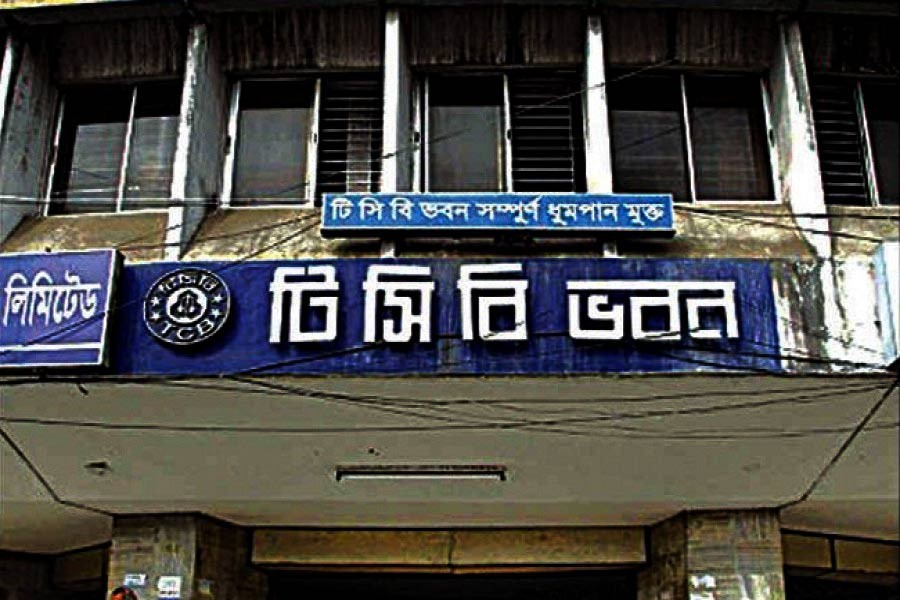Trading Corporation of Bangladesh (TCB) has neither made any significant contribution to the public exchequer nor benefited the country's consumers over the years, opined experts.
Rather, the state-run organisation has been getting a large amount of deficit financing, and devouring government fund in the name of subsidy every year, they also said.
On the other hand, the agency cannot make any visible impact in keeping the prices of essentials at a tolerable level in the market and providing some respite to the common consumers, they added.
The government's trading arm cannot make any contribution to the state exchequer for more than ten fiscal years (FYs), but has been consuming a hefty amount of government fund.
The government provided subsidy amounting to about Tk 3.75 billion to TCB from FY 2010-11 to FY 2015-16, according to the officials concerned.
When contacted, president of Consumers Association of Bangladesh (CAB) Ghulam Rahman said TCB conducts short-term trading in the price spiral of essential items in the country.
Besides, it has no other work, said Mr Rahman, also former chairman of Anti-Corruption Commission (ACC).
"We believe in free market economy. It will be enough, if TCB can reach at break even."
The government should make the organisation more efficient urgently to rein in the price manipulation of dishonest businesses and traders in the country, he added.
However, TCB Public Relations Officer Humayun Kabir said the government has taken different initiatives to develop TCB and expand its activities further. The entity provides 37.5 per cent corporate tax every year.
An official said TCB has long been hamstrung due to capital shortage that has impeded market intervention activities of the agency.
Procurement of key essentials by the state entity for intervention, when their prices go up in the market, has been hampered for severe shortage of working capital, he noted.
In FY 2012-13, TCB was given Tk 8.0 billion as counter-guarantee from the government, against which it imported different commodities and sold those.
A high official of Ministry of Commerce (MoC) said in case of taking Loan against Trust Receipt (LTR) from the banks, TCB has to pay interest at rates between 12 per cent and 13 per cent.
Such borrowing increases the import cost of essentials by the organisation. As a result, their prices increase, and the corporation has to take subsidy from the government.
The cost will be much lower and the consumers will be able to buy the commodities at tolerable prices, if these are imported through cash payment, he added.
A senior TCB official told the FE that working capital is urgently necessary for the government entity, as it lacks required fund to buy commodities.
As TCB sells commodities at subsidised rates in open market, it has to incur huge financial loss every year.
No tangible impact will be visible regarding TCB's market intervention, despite repeated efforts by the state-run corporation, due to procedural delay, manpower shortage and lack of necessary warehouses of the agency, said officials concerned.
There are a total of 2,803 dealers enlisted with the corporation for selling its goods across the country, according to the TCB website.


